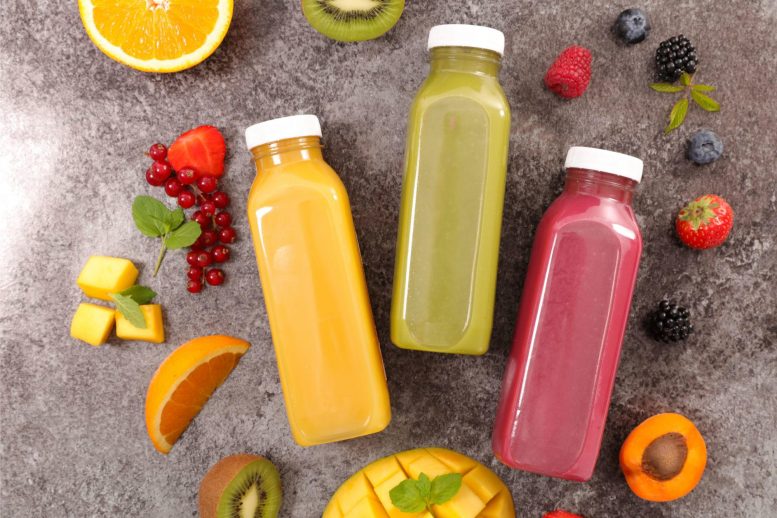
Certain popular beverages have been found to contain levels of toxic metals above federal drinking water standards, posing potential health risks, especially to children, according to a study from Tulane University.
According to a recent study conducted by Tulane University, certain popular drinks were found to contain toxic metals in quantities surpassing federal standards for safe drinking water.
The investigation tested 60 beverages, and found that five of them contained a higher concentration of a particular toxic metal than what is considered safe by federal standards. The report noted that two assorted juices were found to contain arsenic concentrations exceeding the standard of 10 micrograms per liter. Furthermore, a cranberry juice, a mixed fruit and carrot juice, and an oat milk were all found to have cadmium levels beyond the standard of 3 parts per billion.
The sampled beverages, which included those commonly found in grocery stores – single and mixed fruit juices, plant-based milks, sodas, and teas – were measured for 25 different toxic metals and trace elements. Mixed-fruit juices and plant-based milks (such as oat and almond) contained elevated concentrations of toxic metals more often than other drinks, according to the findings published in the Journal of Food Composition and Analysis.
All told, seven of the 25 elements exceeded drinking water standards in some of the drinks, including nickel, manganese, boron, cadmium, strontium, arsenic, and selenium. While lead was detected in more than 93% of the 60 samples, most contained very low levels, below 1 part per billion. The highest level (6.3 micrograms/kg ) was found in a lime sports drink, though that’s below both EPA and WHO standards for drinking water.
Tewodros Godebo, lead author and assistant professor of environmental health sciences at Tulane University School of Public Health and Tropical Medicine, said the study was important because there are few peer-reviewed studies examining the contents of American beverages.
“It was surprising that there aren’t a lot of studies out there concerning toxic and essential elements in soft drinks in the United States,” Godebo said. “This creates awareness that there needs to be more study.”
These soft drinks are often consumed in smaller quantities than water, meaning the health risks for adults are most likely low. But Godebo said parents should be cautious about what drinks they offer their children.
“People should avoid giving infants and young children mixed-fruit juices or plant-based milks at high volume,” Godebo said. “Arsenic, lead, and cadmium are known carcinogens and well established to cause internal organ damage and cognitive harm in children, especially during early brain development.”
Godebo said most of these elements found in beverages presumably come from contaminated soil.
“These metals are naturally occurring so it’s hard to get rid of completely,” Godebo said.
Hannah Stoner and Julia Ashmead, Tulane University students who participated in the study, said they hope the findings encourage people to think more about what they consume.
“I don’t think there needs to be fear,” Stoner said. “In toxicity, it’s the dosage that often makes the difference so everything in moderation. But this creates awareness that there needs to be more study.”
Godebo said the next step is to conduct a risk assessment based on the data collected to see the impacts of consuming toxic metals in children and adults.
“We are curious to keep exploring what’s in our drinks and foods commercially sold to the consumers,” Godebo said.
Reference: “Toxic metals and essential elements contents in commercially available fruit juices and other non-alcoholic beverages from the United States” by Tewodros Rango Godebo, Hannah Stoner, Madeline Pechilis, Hadley Taylor-Arnold, Julia Ashmead, Leah Claman, Liam Guest, Will Consolati, Oona DiMatteo, Madison Johnson, Kalista Cowden, Danny Shaferman, Evan Gordon, Hayden Dillman, Nati Phan, Aaron Tegegn, Sandra Vazquez Garrido and Eames Heard, 20 February 2023, Journal of Food Composition and Analysis.
DOI: 10.1016/j.jfca.2023.105230




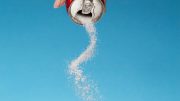
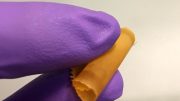
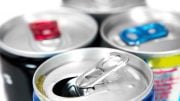
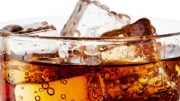

The article is worthless. Why even publish it?! Not a single specific product is mentioned. All the article does is raise alarm with NO ability for the public to take action. Stop publishing this crap! Worst journalism I’ve ever seen!
Agree 100%
I totally agree with your view. As if we don’t have enough to worry about! Unless they’re going to be specific. Please don’t put more for us to stress over. Especially parents they
probably stress about anything and everything they feed they’re children! 😡
I agree, are only the researchers suppose to know these dangers of certain products while the public still suffers ignorantly? Save your ink.
Regarding Toxic Metals in Fruit Juices and Soft Drinks, unless which drinks are named specifically how does this article help the consumer?
Such a spammy ad filled webpage, didn’t even load correctly with all of the popups. I didn’t even read the article. Comments verify I didn’t miss anything. Blocking in Google news feed ..
This is scaring ppl that drink Hansen’s. Odwalla. Naked juice and oat milk. And almond. Supposed to be healthy.
Scare, frighten and dire warnings without a clue which products you are addressing.
Gee, thanks for freaking us out that we might be drinking toxic metals and not mentioning or even posting a link to the list of these 60 drinks. We deserve to know if we’re drinking this stuff, but typical journalists care more about scaring people about actually helping them with their stories.
That’s a liberal Google sponsored article if I ever saw one. Fear maintains control.
Total waste of time. The article contains absolutely no useful information. I still have no idea what I should avoid drinking.
Nope. It’s probably a conservative article typically devoid of any actual information.
I agree with Andys comments that specific products are not named if we haven’t enough worry about I know that rice milk has minute amounts of Arsenic in it.